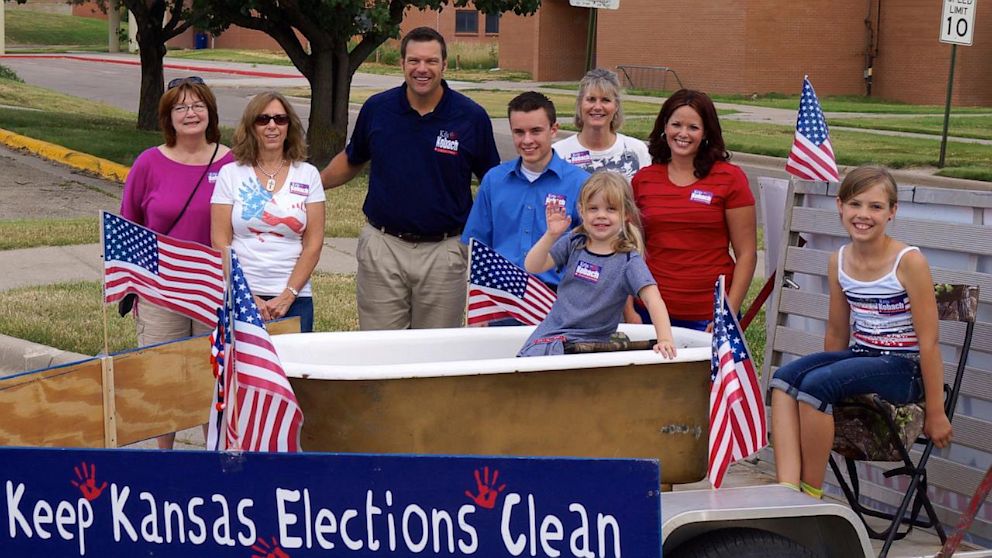Kobach Is Back: Immigration Foe Sues Feds Over Voter Citizenship Laws
Kansas and Arizona want voters to prove they are U.S. citizens.

Aug. 22, 2013— -- Republican administrations in Kansas and Arizona have teamed up to sue the federal government for permission to require proof of U.S. citizenship from people registering to vote.
Kansas Secretary of State Kris Kobach, the author of a number of controversial immigration crackdown laws, and Arizona Secretary of State Ken Bennett filed a suit that asks the U.S. Election Assistance Commission to change federal voter registration forms to permit states to require proof of citizenship from potential voters, the Kansas City Starreported Wednesday.
That’s an effort to comply with a Supreme Court ruling in June, which said that Arizona cannot ask for proof of citizenship from people seeking to vote. Current federal registration forms only require voters to declare they are citizens, not provide documentary proof. But the court’s decision left open the possibility for states like Arizona to challenge existing standards through legal action.
Kansas and Arizona officials say the laws are designed to prevent undocumented immigrants from voting, but civil-rights organizations say they have far worse negative consequences.
The American Civil Liberties Union has said the Kansas law has blocked people from participating in elections. In the Jayhawk State, more than 15,000 people have completed registration forms but can’t vote due to the fact they have not presented documents proving they are citizens, according to the Star.
The ACLU and other groups say there is little evidence that voter fraud is a widespread phenomenon. Keesha Gaskins, senior counsel for the Democracy Project at the Brennan Center for Justice, told the Associated Press this month that the laws’ negative effects outweigh any positives.
"The cure is worse than the disease," she said.
Kobach isn’t concerned with the blocked registration reform, saying that’s a "natural consequence of the way we wrote the law,” according to the . Kobach said his office has identified 15 instances of non-citizens attempting to register to vote.
"Every time an alien votes, it effectively cancels out the vote of a U.S. citizen," Kobach said on Wednesday.
But that offers little solace to people like Aaron Belenky, 39, whose registration to vote in Kansas is one of those that have been suspended.
"I don't like anybody putting up barriers between me and a very basic right," Belenky told the AP. "It's the state government saying that they don't believe me when I say I'm a citizen. I'm offended by that.”




